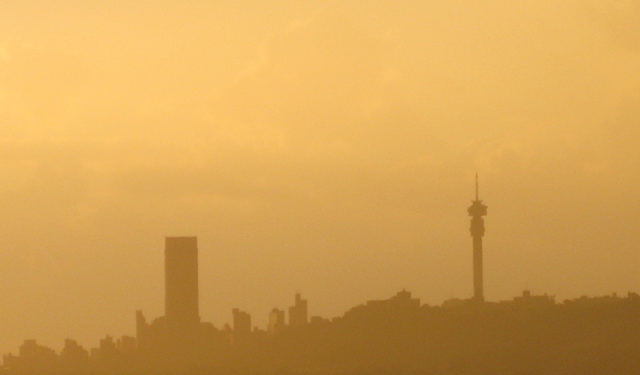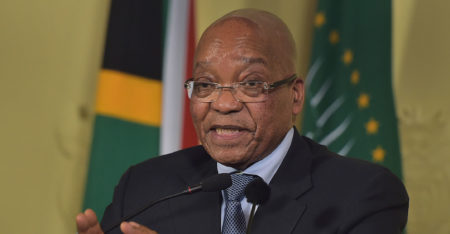
South Africa’s two main opposition parties agreed to informally band together in local governments, shutting the ANC out of the management of several major cities, including Johannesburg and Pretoria.
The Economic Freedom Fighters said it will vote with the Democratic Alliance in a number of the 27 municipalities left with hung councils after 3 August elections, stopping short of a formal pact because of ideological differences.
The EFF won more than 11% support in Tshwane, which includes Pretoria, and Johannesburg, making it the kingmaker for the ANC and DA to control the cities and their combined budgets of more than R80bn.
“We were caught between two devils and we had to choose a better devil,” EFF leader Julius Malema told reporters in Johannesburg on Wednesday. “We want the ANC to be removed from power and this is the beginning.”
The opposition alliance is the latest signal that the stranglehold the ANC has had on South African politics since it took power under Nelson Mandela 22 years ago is slipping. The party’s share of the national popular vote fell to about 55% from 62% in national elections two years earlier, with a series of scandals implicating President Jacob Zuma, an economic slump and high unemployment eroding its urban support.
The two main opposition parties are far apart when it comes to economic policy — the DA favours making it easier to do business, while the the EFF advocates the nationalisation of mines and banks and the expropriation of white-owned land without compensation.
The informal opposition alliance may make the cities more difficult to govern, said Melanie Verwoerd, an independent political analyst.
“All the minority local governments will have to go to the EFF for approval on budget, raising rates and taxes and any other issue that requires 50% plus one of the councillors,” she said by phone from Cape Town. “For this to work, politicians at local level need to show a strong amount of maturity and, unfortunately, we have not even seen this at the national level.”
Malema, 35, said coalition talks with the ANC collapsed after the ruling party rejected its demands to remove Zuma, nationalise the country’s mines and seize land without compensation.
‘Blood boil’
Zuma leading the country “makes our blood boil”, Malema said. “If the ANC removes this crook, there will be peace.”
Zuma, 74, has faced demands to quit since the nation’s top court found in March he violated the constitution by refusing to pay back taxpayer money spent on upgrading his rural home.
Erratic decisions including firing a respected finance minister have contributed to the rand falling by 38% against the dollar since he took power in 2009.
The country’s graft ombudsman has been asked to investigate claims Zuma’s friends, the Gupta family, have sought to influence the appointment of government ministers.
Malema formed the EFF three years ago after being expelled from the ANC. He was the head of the ruling party’s youth wing.
“We move into uncharted territory with the minority governments at local levels,” Daniel Silke, director of the Political Futures Consultancy in Cape Town, said by phone. “This means that new systems, new alliances and new relationships will have to be forged across party lines and this places a question mark over efficient service delivery.” — (c) 2016 Bloomberg LP




